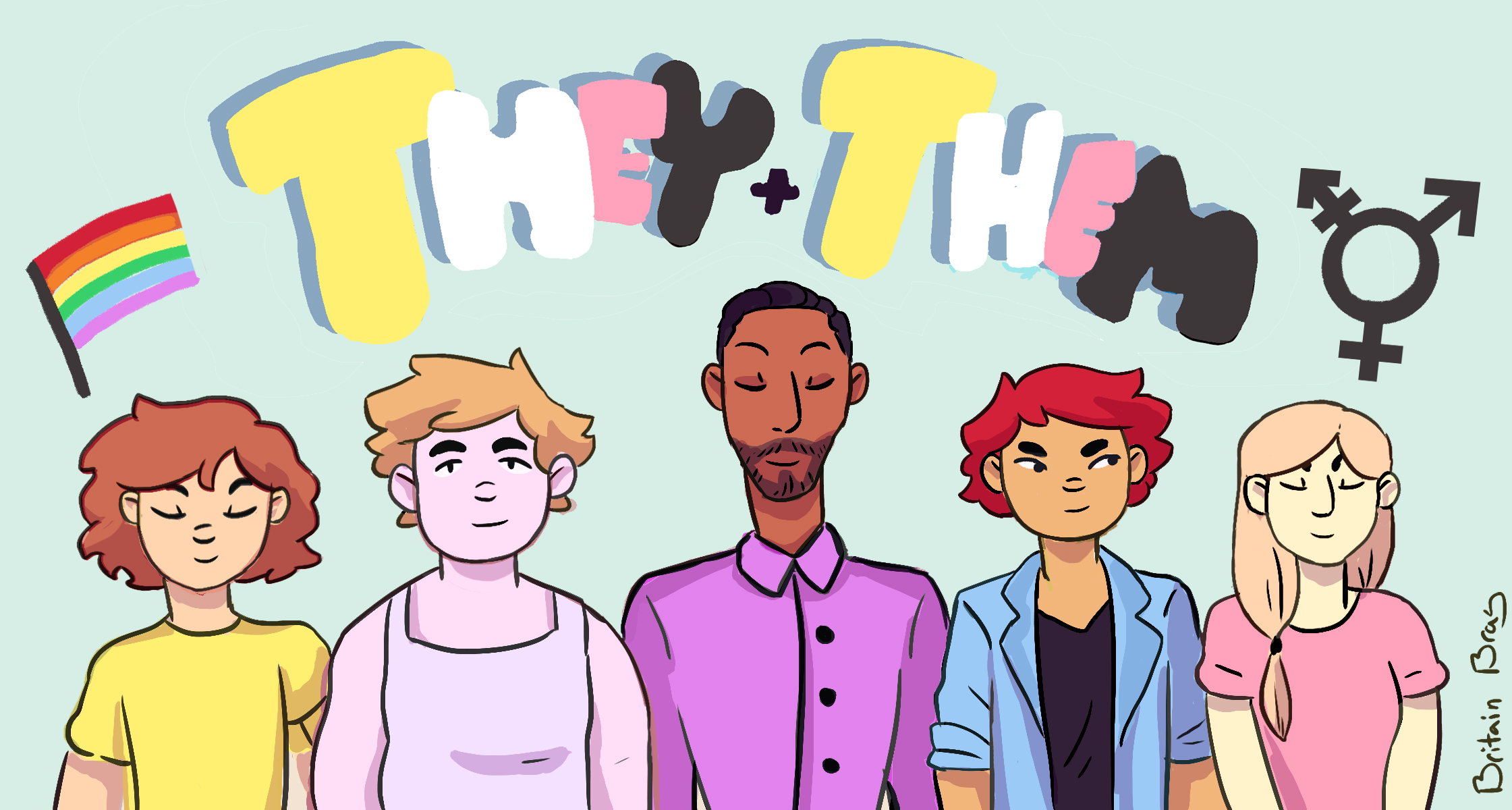Leah Weller, sophomore women, gender and sexuality major, hosted a pronouns workshop on Oct. 17 in recognition of the first International Pronouns Day.
Weller hosted this event to bring awareness to the importance of using the correct pronouns when addressing someone who may be non-binary and to shine a light on this movement that has been slowly changing the dynamic of gender inclusivity at colleges and universities nationwide.
“I just don’t feel like I fit what people assume to be a woman, even though I look like I would, inside I’m like, ‘That’s just not me,’” Weller said.
Weller said that it can be challenging to change the way we’re socialized to speak, even as kids, but says it is a challenge worth accepting.
“It is very hard when you’re first starting to not assume that everyone is a boy or girl, so…a really good first step is really actively challenging yourself to look at a stranger and tell yourself actively, ‘I do not know that person’s gender’ even if they look like they’d be woman, tell yourself they may not be a woman.. And just kind of getting away from those assumptions is a really good first step” Weller said.
The workshop consisted of Weller presenting and explaining the use of gender-neutral pronouns to students and faculty to make them more aware of how to speak more inclusively and not make assumptions about a person’s gender identity.
“I kind of explained what pronouns were, how they are used, different pronouns, not just ‘she/her’ and ‘he/him,’ but using different pronouns like ‘they’ ‘them’ and neopronouns, which are alternative pronouns that some people use,” Weller said. “I also talked about how to use them in a sentence and why people should respect them. I put on the event because I discovered a few weeks before that day, that it would be the first International Pronouns Day, so I was really excited about that since I use ‘they/them’ pronouns. I wanted to get the word out and help educate people on how to use different pronouns.”
Britt Klein, senior child and family development and women gender studies major and Africana studies minor, said they never truly felt male or female and up until a year ago they never brought up pronouns or realized that being referred to as he or she would matter.
Weller explains that it can offend or sometimes hurt them when people use the wrong pronoun, because even though on the outside they may appear as a female, Weller does not identify as a woman.
“It’s only been about a little more than a year since I’ve been trying to go by ‘they/them’ so it hasn’t been too long and it’s been difficult for other people…because it’s never really come up. I never really mention pronouns. People just assume I go by ‘she’ or ‘he’ and when you tell someone that you are going by ‘they’ or ‘them,’ they are either super-accepting about it or they’re just like, ‘No, I’m not going to do that,’” Klein said.
In “‘Ze’ or ‘They?’ A Guide to Using Gender-Neutral Pronouns” on Citylab.com, author Linda Poon discusses the countless universities across the nation making steps toward gender inclusivity and allowing students to pick their own gender.
“Earlier this month, Harvard University made a buzz after allowing students to select gender-neutral options like “ze,” “e,” and “they” on registration forms,” Poon wrote.
Among academic institutions, the University of Vermont led the change last year when it became the first school to allow students to select their own identifiers, according to the New York Times.
“I think the only thing that I would say is that trans people and nonbinary people exist and it’s ridiculous that some people don’t think (they do), and we should just love everybody,” Klein said.



Leave a Reply